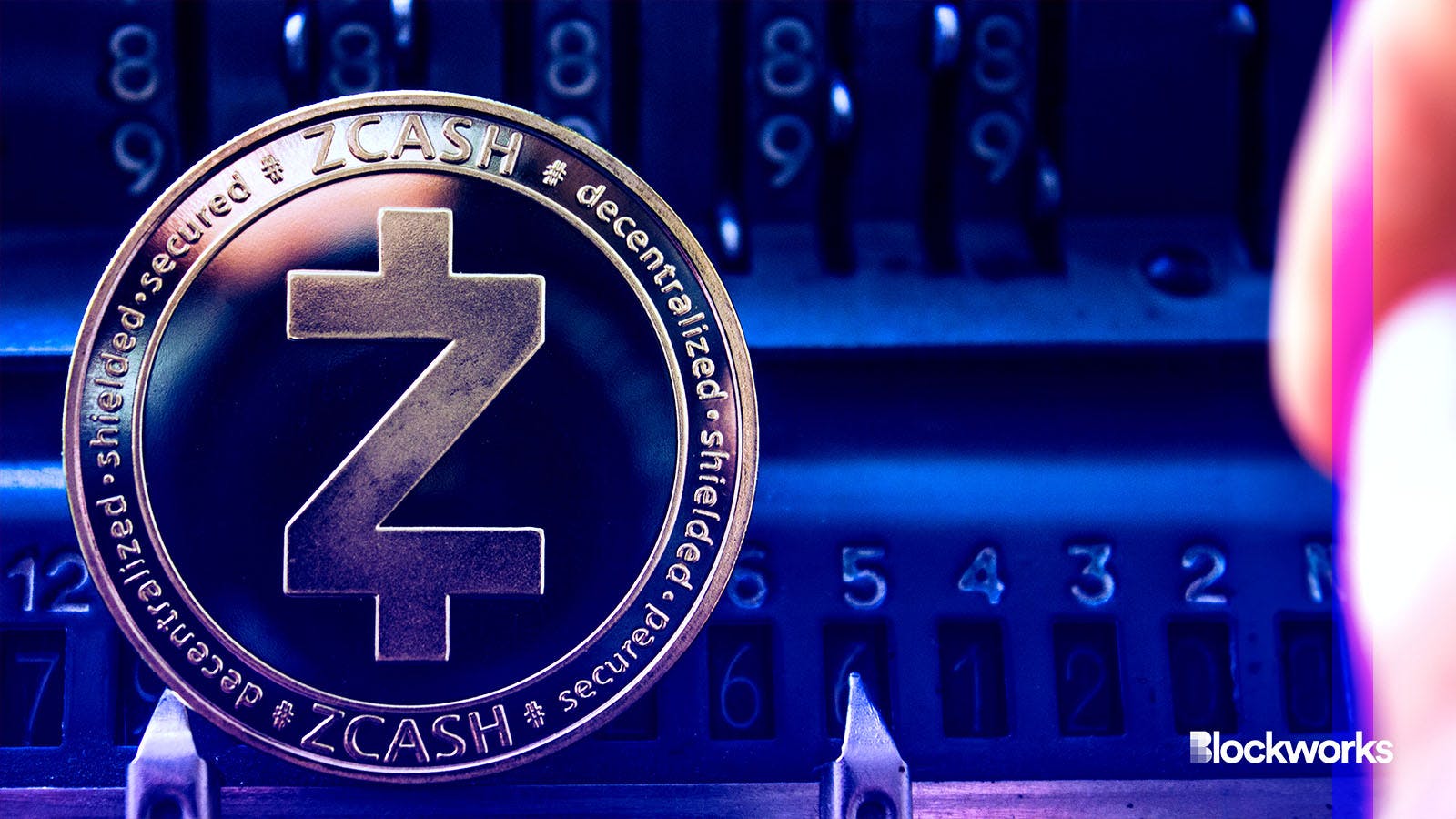Privacy coins Zcash and Monero face delisting by crypto exchanges
OKX will be delisting the top three privacy coins next week

Stanslavs / Shutterstock, modified by Blockworks
OKX, a major cryptocurrency exchange, announced its decision to delist 20 spot trading pairs in the new year.
Among the tokens listed are several privacy-focused cryptocurrencies, including the three largest: Monero (XMR), Zcash (ZEC), and Dash (DASH). The exchange has already suspended deposits of these crypto assets, and trading will cease on Jan. 5.
The rationale for the delisting is not specified in the announcement, published Friday, other than to say that it is “based on feedback from users” and that the tokens “do not fulfill our listing criteria.”
Other cryptoassets that are not privacy coins are also slated for delisting. Blockworks has requested clarification on the exchange’s policies.
Customers have until March 5, 2024, to withdraw these assets.
 Full list of trading pairs to be delisted; Source: OKX
Full list of trading pairs to be delisted; Source: OKXLeading crypto exchange Binance has been grappling with policies around privacy coins, announcing a decision to delist several prominent ones in May before backtracking in June.
Read more: Binance backtracks on delisting privacy coins in some EU nations
As a category, privacy coins have been a source of tension between the cryptocurrency industry’s foundational ethos of privacy and pseudonymity, and the increasing pressure to comply with global regulatory standards.
Privacy coins are designed to provide greater anonymity than other cryptoassets such as Bitcoin by obscuring the transaction details, including the transacting parties and amounts.
However, this very feature of enhanced privacy has drawn scrutiny from regulators worldwide, who fear the technologies underpinning these assets can be misused for illicit activities such as money laundering, terrorist financing, and circumventing economic sanctions.
In response to these concerns, cryptocurrency exchanges are caught between customers’ legitimate demands to protect their privacy rights while complying with the laws and regulations that govern financial transactions globally.
For instance, the European Union’s Markets in Crypto-Assets Regulation (MiCA) states: “The operating rules of the trading platform for crypto-assets shall prevent the admission to trading of crypto-assets that have an inbuilt anonymisation function unless the holders of those crypto-assets and their transaction history can be identified by the crypto-asset service providers operating a trading platform for crypto-assets.”
Technical solutions are available to meet this obligation, mandated by December 2024, but they require cooperation between developers of privacy coins and crypto exchanges. For instance, the Zcash community has been discussing options for months on its public forum, proposing four solutions.
According to community member “aquietinvestor”, Binance has rejected these proposals.
“The only available course of action is to implement the ‘exchange-only’ address type. Failing to do so will result in ZEC being delisted from the Binance exchange. Binance is giving us until February 29, 2024 to comply,” they wrote on Tuesday.
There are two types of addresses in Zcash: transparent (t-addresses), similar to Bitcoin addresses, and shielded (z-addresses), which provide strong privacy protections.
An “exchange-only” addresses are ‘transparent’ and do not offer the privacy features of z-addresses, but could be required by exchanges for deposit and withdrawal transactions.
Blockworks requested comment from Binance, but has not yet received a response.
The practical impact of OKX’s decision may be limited based on recent trading volume figures. OKX’s largest trading pair for XMR had about $2.5 million in 24-hour volume, and its ZEC trading pair total about $7.5 million, according to CoinGecko — roughly half of Binance’s volume.
However, the move reflects a larger shift in the cryptocurrency landscape where exchanges are increasingly prioritizing regulatory compliance.
Finding ways to balance privacy with preventing misuse of privacy preserving technologies is an ongoing focus of research within the crypto industry.
Read more: Privacy is paramount, and zero-knowledge cryptography is the way
Get the news in your inbox. Explore Blockworks newsletters:
- The Breakdown: Decoding crypto and the markets. Daily.
- Empire: Crypto news and analysis to start your day.
- Forward Guidance: The intersection of crypto, macro and policy.
- 0xResearch: Alpha directly in your inbox.
- Lightspeed: All things Solana.
- The Drop: Apps, games, memes and more.
- Supply Shock: Bitcoin, bitcoin, bitcoin.





